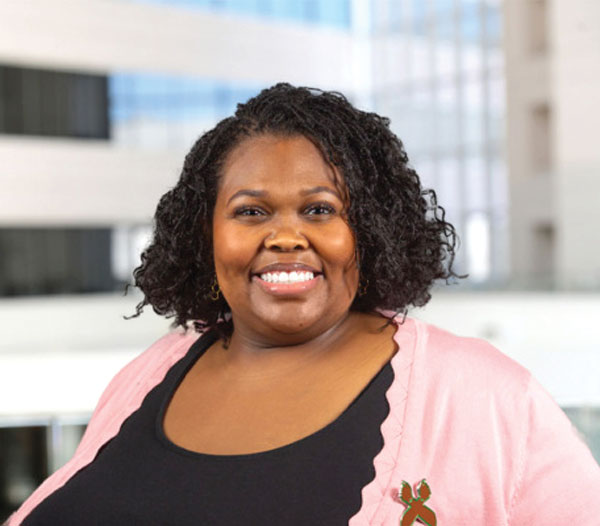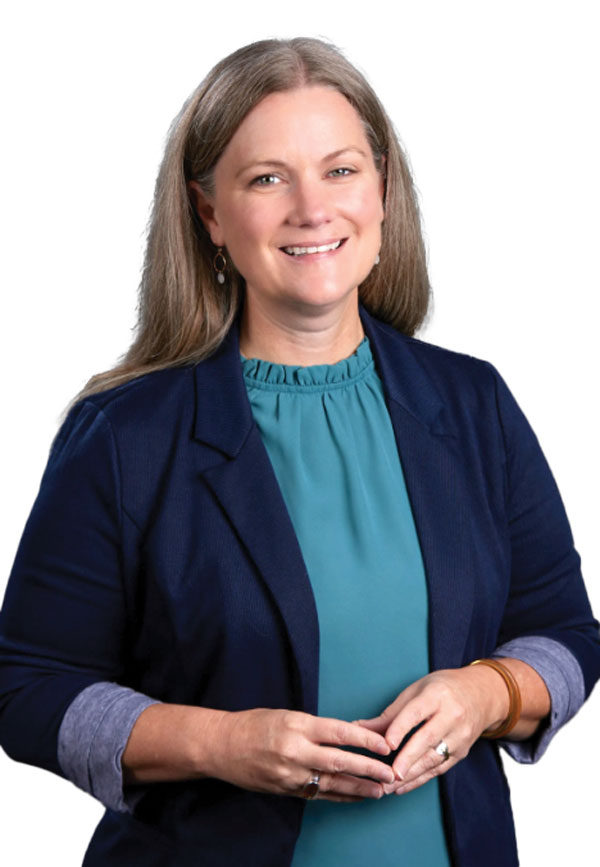Anybody who has a tween or teen of their life—or has come throughout one in all them within the wild—can attest that center and highschool college students love their cellular gadgets. Forty-six % of U.S. teenagers say they’re on-line “virtually always,” in accordance with a 2023 examine from the Pew Analysis Middle. A lot of these children spend a lot of their display screen time partaking with social media. On common, teenagers within the U.S. spend 4.8 hours per day on social media platforms together with YouTube, TikTok, and Instagram, in accordance with a 2023 Gallup survey. Dad and mom and educators share quite a few considerations about this actuality, together with potential hyperlinks between social media use and declining adolescent psychological well being. And in in the present day’s difficult digital media panorama, the place social media has a starring function and generative AI is on the rise, misinformation, disinformation, and conspiracy theories abound, inflicting confusion and even hurt. Librarians are—and all the time have been—serving to college students to raised traverse this difficult terrain by instructing info literacy and its shut kinfolk, media literacy and information literacy. That job has change into tougher and vital than ever.
“I outline ‘info literacy’ because the information and abilities wanted to ethically and efficiently navigate the data surroundings,” says Steve Tetreault, a college library media specialist in Holmdel, N.J. “We live in an info world. We’ve acquired an info financial system, and we actually have cash now that’s made of data, cryptocurrency. If our purpose is to organize college students to be a part of the world, info literacy needs to be a part of that instruction.” Tetreault posits that “aside from studying and math, info literacy is a very powerful talent we are able to educate our college students, and it’s a cross-curricular matter that may be touched on in each topic.”
However many academics usually are not aware of info literacy. The time period is usually misunderstood and incessantly will get conflated with each media literacy and information literacy. “Media literacy is studying to critically and successfully analyze the messages and information college students encounter,” says Tara Nattrass, managing director of innovation technique at ISTE + ACSD, the Worldwide Society for Know-how in Training and the Affiliation for Supervision and Curriculum Growth, two merged nonprofits offering skilled growth for educators. “It contains understanding how media messages are constructed and recognizing their affect.”
And in accordance with Brittney Smith, senior supervisor of district partnerships on the nonpartisan nonprofit Information Literacy Undertaking, generally phrases, “information literacy offers with instructing college students easy methods to discover credible sources and easy methods to decide what info they need to belief.” Moreover, NLP emphasizes that information literacy helps college students perceive the function that credible info and a free press play in their very own lives in addition to in a wholesome democracy.
Although the definitions of those literacies could also be nuanced, Nattrass factors out that “mastering these abilities is essential for college kids to thrive in in the present day’s digital age, the place knowledgeable decision-making, moral conduct, and demanding pondering are important.” She notes that every one three literacies taken collectively, together with digital literacy, function a core information for college kids, serving to them “navigate the complexities of digital environments and equipping them to investigate info, have interaction responsibly, and contribute meaningfully to their communities.” Armed with this physique of data, Nattrass provides that “college students change into empowered to form a extra inclusive digital and bodily world.”
The Frontliners

Brittney Smith
Senior supervisor of district partnerships on the Information Literacy Undertaking
“We acknowledge that misinformation has precipitated a severe risk to our democracy. Educating college students
easy methods to consider info offers them the talents they should play an lively function in our democracy.”

Steve Tetreault
college library media specialist
“The youthful we are able to get college students interested by info literacy, the higher it’s. However we must be hitting it on a regular basis, yearly, at each grade stage.”

Tara Nattrass
managing director of innovation technique at ISTE + ACSD
“Media literacy is studying to critically and successfully analyze the messages and information college students encounter.”
The long run is now
The push to offer formal info literacy schooling for Ok–12 college students acquired a giant enhance in 2014 when the Future Prepared Initiative launched throughout the White Home ConnectED to the Future Convening, in partnership with the coverage and advocacy group Alliance
for Glorious Training. At that occasion, greater than 100 college district superintendents from across the nation—assembly with then-president Barack Obama, Training secretary Arne Duncan, and leaders from the U.S. Division of Training—signed a pledge committing to “work collaboratively with key district stakeholders to set a imaginative and prescient for digital studying, to empower educators by customized skilled studying, and to mentor different district leaders in their very own transition to digital studying.”
The Future Prepared motion expanded in 2016 to incorporate a Future Prepared Librarians Framework outlining librarians’ function within the mission to provide college students entry to efficient expertise and high quality instructing, with organizations together with Follett College Options and ISTE offering funding {and professional} growth assist. And in 2018, the American Affiliation of College Librarians aligned its requirements with the ISTE Requirements for Learners and Educators and the Future Prepared Framework, supplying college librarians with further tips and finest practices for instructing info literacy and associated matters.
Lately, as college students’ lives have change into extra intertwined with digital expertise and political and cultural divides have deepened, the necessity for info literacy, media literacy, and information literacy has change into extra pressing. Postmortems of the 2024 presidential election have turned a highlight on quite a few points, notably how and the place Individuals eat media and information and the way they’re influenced by it. “There are people who find themselves getting a whole lot of info from sources that aren’t very dependable or correct,” Tetreault says. “And while you say, ‘Here’s a supply that’s not very reliable,’ if persons are getting their info from that supply, they will get very emotional about that. And I utterly perceive getting upset if any person says that the factor you want isn’t any good.”
He believes {that a} totally different, much less emotional method is simplest. “If we are saying, ‘Listed here are the issues that any individual ought to search for from any information supply or info supply,’ and we’re capable of make it extra goal slightly than subjective, folks are inclined to agree that, sure, these are issues we must be in search of in sources of data and that the fundamental abilities are completely issues that we must be serving to college students perceive.”
For Smith, the hazards that may stem from an absence of reports literacy really feel notably shut. “We acknowledge that misinformation has precipitated a severe risk to our democracy,” she says. “And we really feel that instructing college students easy methods to consider info, the concentrate on the schooling piece itself, offers them the talents they should really feel empowered to create change and play an lively function in our democracy.” As a part of that purpose, NLP surveyed 1,110 13- to 18-year-olds from throughout the nation to study extra about teenagers’ info attitudes, habits, and abilities. The outcomes have been launched in October within the first-ever “Information Literacy in America” report.
Among the many findings: solely 18% of surveyed teenagers have been capable of appropriately distinguish between such info sorts as information, opinion, and commercial. Forty-five % of teenagers responded that skilled journalists and the organizations they work for do extra to hurt democracy than to guard it; solely 8% of teenagers stated they’d excessive belief in information media. And eight in 10 teenagers reported that they see conspiracy theories on social media, with 81% of the teenagers encountering conspiracy theories on social media saying they’re prone to consider at the very least one in all them.
When it comes to formal information literacy schooling, the 2023 Media Literacy Coverage Report from nonprofit Media Literacy Now signifies that 19 states have taken legislative motion to prioritize media literacy (together with information literacy) as a core component of Ok–12 schooling. However the NLP report discovered that of these 19, solely 9 states have included language that covers information literacy, and simply three of these 9 states (Connecticut, Illinois, and New Jersey) require that information literacy be included in some school rooms.
In January 2023, New Jersey grew to become the primary state to go laws requiring Ok–12 instruction on info literacy. Tetreault was chosen as a part of a gaggle of 60–70 educators and college librarians from throughout disciplines and grade ranges to work on the mission over the summer time of 2024. “I labored on the center college info literacy writing drafting group and acquired to assist provide you with a primary model of what we predict this must be,” Tetreault says. “It was difficult, however it was actually nice to get all these totally different views and be capable of residence in on some key parts as we went by all of it.” The requirements are anticipated to maneuver right into a public remark section quickly.
“The youthful we are able to get college students interested by these items, the higher it’s,” Tetreault says. “However we must be hitting it on a regular basis, yearly, at each grade stage.” Early on, for instance, classes will be one thing as primary as figuring out the place a bit of data got here from and easy methods to establish its supply. “A variety of college students will say, ‘Properly, Google stated…,’ ” he notes. “Properly, no, Google pulls info from different locations.” And with the arrival of AI, he notes, “issues have positively gotten extra complicated slightly than much less prior to now couple of years.”
A scarcity of college librarians—who’re skilled to show info literacy—and of college libraries doesn’t assist. And Tetreault admits that including info literacy to a trainer’s lesson plans does require that they do some extra work. But it surely doesn’t should be onerous. On Tetreault’s center college turf, he finds that dialog is all the time key. “It’s a straightforward start line and might come up in actually any class when children are sharing info,” he says. “You may simply ask, ‘The place did you hear that?’ or, ‘How are you aware that that’s true?’ It helps them begin interested by the sources that they’re referencing. Taking an additional 5 minutes to have a dialog will vastly enhance college students’ understanding of data and the way they work together with it.”
Trying forward, librarians and educators can discover assist and sources, together with strong skilled growth and classroom prepared classes, from AASL, Widespread Sense Media, ISTE + ASCD, Media Literacy Now, and the NLP, amongst others. Smith at NLP cites a hopeful word in her group’s newest analysis: “One of the vital inspiring issues concerning the examine is that college students need information literacy coaching,” she says. Actually, 94% of teenagers surveyed consider that media literacy must be a required topic taught in colleges.
Tetreault sees a shiny facet as effectively. “Children are conscious that they don’t know every little thing there’s to learn about this, and they’re keen to get some instruction and pay attention, which is nice, as a result of if the scholars are immune to it, you’re lifeless earlier than you even begin,” he says. For subsequent steps, “It’s principally a matter of simply serving to folks to grasp that this can be a matter that must be addressed. And hopefully we are able to get directors and college boards interested by the truth that we should always have knowledgeable who is aware of how to do that in our colleges and provide that help to the academics as a lot as potential.”
Creating Digital Residents
“At ISTE + ASCD, instructing digital well-being isn’t about itemizing ‘don’ts,’ ” in accordance with Tara Nattrass, managing director of innovation technique for the organizations. “As a substitute, it emphasizes ‘dos’ by modeling and working towards abilities that empower younger folks to be considerate, empathetic digital residents.” To that finish, in 2019, ISTE teamed up with a various group of schooling, media, and tech organizations to type the Digital Citizenship Dedication marketing campaign, with a purpose of redefining digital citizenship and offering educators with the required instruments to show the newly outlined self-discipline.
Collectively, founding members of this Digital Citizenship Coalition, together with Widespread Sense Training, Google, KQED, and Los Angeles Unified College District, developed the 5 competencies of digital citizenship, by way of DigCitCommit.org:
Balanced: College students take part in a wholesome number of on-line actions and know easy methods to prioritize their time between digital and bodily actions.
Knowledgeable: College students consider the accuracy, perspective, and validity of digital media and develop essential abilities for curating info from digital sources.
Inclusive: College students are open to listening to and recognizing totally different viewpoints and interesting with others on-line with respect and empathy.
Engaged: College students use expertise and digital channels to unravel issues and be a pressure for good of their households and communities.
Alert: College students are conscious of their digital actions and know easy methods to be protected and create protected areas for others on-line.
Further sources for educators, together with movies, printed supplies, and a 15-hour self-paced on-line course Digital Citizenship in Motion from ISTE U, will be discovered on the Digital Citizenship in Training web page on ISTE’s web site.
Learn extra from our College & Library Highlight characteristic.
Academics Assist College students Anchor the Information with Info
A model of this text appeared within the 01/06/2025 problem of Publishers Weekly underneath the headline: On the Entrance Traces









